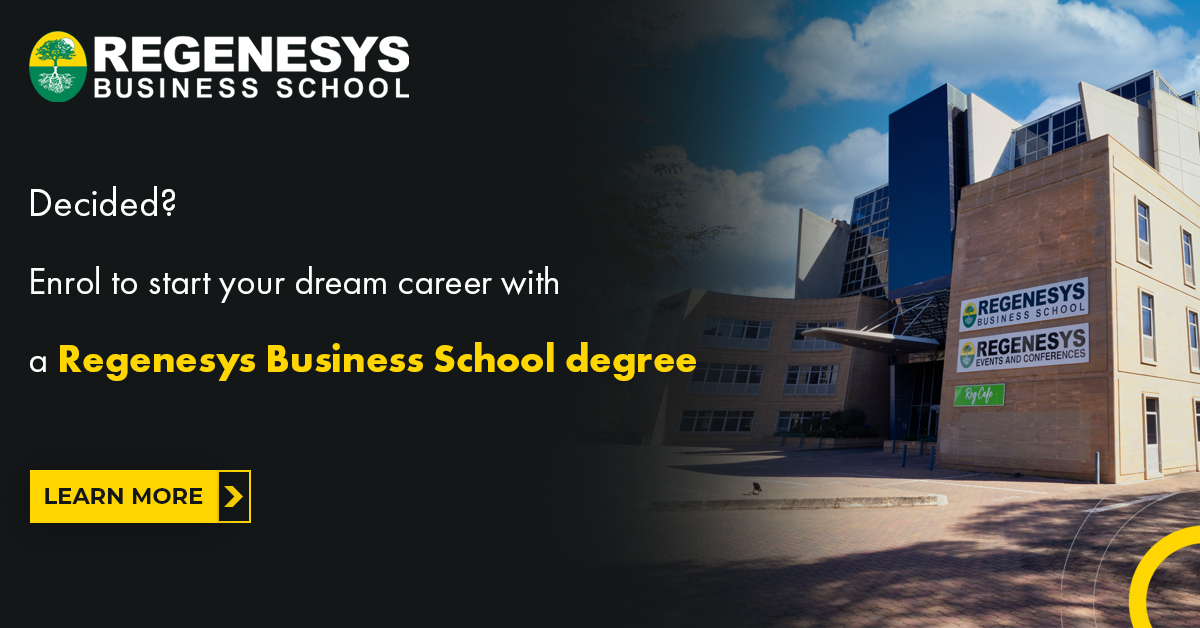Wondering what to do with the rest of your life, and looking at salaries to try to decide whether to become a lawyer or an accountant?
You can earn fabulous salaries – or humdrum ones – in both professions. Neither is a given; it all depends on how you choose to shape your career. So let’s work through the options.
IN THIS ARTICLE:
- What do lawyers and accountants do?
- The skills lawyers and accountants need
- The educational credentials you must have
- Bachelor of Laws careers
- Accounting science careers
- What you are likely to get from your law degree
- What you are likely to get from accounting science
- What is more important – money, or a fulfilling career?
What do lawyers and accountants do?
Lawyers may support clients in distress, fighting for justice for them, or – if they go the corporate route – ensure that their organisations are legally compliant, that their contracting is watertight, and litigate on behalf of or defend their organisations. Others might concentrate solely on ensuring individuals’ contracts – from rentals to house purchases – are sound, while those involved in mergers and acquisitions play a high-stakes game, ensuring that the entities they represent are protected from risk. These lawyers work closely with accountants, tax specialists and other professionals to close deals. And yet other legal practitioners might choose to work in the justice system as prosecutors, magistrates or judges.
Legal practitioner jobs usually require:
- Investigating and analysing cases;
- Presenting facts and figures verbally and in writing;
- Arguing cases;
- Advising clients; and
- Representing clients in legal proceedings.
The areas of law they can specialise in include environmental, tax, intellectual property, family, securities, commercial, labour, maritime, and criminal law.
While accountants also help ensure individuals and organisations comply with regulations, they keep a finger on corporate clients’ financial pulse, ensuring accurate financial records are properly kept, analysed to identify trends and support critical decision-making, and reported on regularly.
Their jobs usually include:
- Carrying out financial audits;
- Preparing financial statements and reconciling bank statements;
- Managing budgets;
- Making recommendations to improve business performance; and
- Providing advice on investment, tax and other financial matters.
They may specialise in tax, forensic or management accounting, auditing or investment advice.
The skills lawyers and accountants need
There is a great deal of overlap in the skills, habits and attributes you need in in both jobs. Both lawyers and accountants need excellent communication skills, business and financial acumen, to be detail-oriented and accurate, practise excellent time management, to stay up to date with legislation and current affairs, able to adapt quickly to changing circumstances, and have unquestionable integrity,
In addition, lawyers must be analytical and critical thinkers, able to solve problems, and have negotiation skills, emotional intelligence, interpersonal skills, and research skills. Accountants must be analytical, have good maths skills, and excellent computer skills.
The educational credentials you must have
Even some of the knowledge both kinds of professionals need overlaps. However, the qualifications they require are quite different.
Lawyers need at least a four-year Bachelor of Laws degree and to pass a series of professional exams to be admitted as legal practitioners. Their studies usually cover law relating to property, persons, family, the constitution, contract, succession, intellectual property, tax, labour, evidence, delict, business entities, administration, and civil and criminal law and procedure. They must also study ethics, jurisprudence, legal interpretation, and the Bill of Rights, and may choose to study specialised fields such as international law, environmental law, deceased estates, medical law, insurance law, or cyberlaw. They will also be expected to study business management, research methodology and accounting for legal practices.
Accountants, who require a Bachelor of Accounting Science degree and a Postgraduate Diploma in Accounting – so also at least four years’ study – must also pass a series of professional assessments to be recognised as accounting practitioners. Their programmes should include financial, cost, and management accounting; auditing; taxation; risk and financial management; and corporate governance. These should be supported by courses in economics, business management, commercial and company law, maths, and statistical analysis.
Bachelor of Laws careers
Once you have completed professional exams and a Bachelor of Laws, careers you can consider include:
- Corporate lawyer
- State counsel
- Conveyancer
- Advocate
- Prosecutor
- Magistrate
- Judge
You could set up or join a practice specialising in resolving medical malpractice, family disputes, criminal defence, human rights law, environmental law, or tax law, to name a few possibilities.
A remarkable number of lawyers have gone on to become presidents or prime ministers of their countries. More than half of US’s presidents were lawyers prior to their appointment as statesman in chief. Elsewhere, think of Nelson Mandela, Mahatma Gandhi, Xi Jinping, Tony Blair, Julia Gillard … it has been said that lawyers rule the world!
Accounting science careers
Having a Bachelor of Accounting Science does not restrict you to being an accountant. Like law practitioners, you can run your own business, join a company, or join a partnership.
In a corporate setting, you might consider being a
- Bookkeeper
- Financial manager
- Financial controller
- Investment advisor
- Auditor
- Actuary
- Chief financial officer
- Investment banker
You could also practice on your own or in a partnership as an accountant, independent auditor, chartered accountant, or financial advisor, among other things.
And having learnt a great deal about doing business during your studies, there is also potential to become an entrepreneur, starting up businesses, turning them around, and leading them. Did you know that a fifth of the chief executives of FTSE 100-listed companies are accountants (Fino, 2018)? So though you are not as likely, as an accountant, to become a world leader, you can develop the skills to lead the corporate world.
What you are likely to get from your law degree
Law is an excellent choice if you are public-spirited, as your law degree will allow you to contribute to society. Once qualified you can work independently, enjoying the freedom and flexibility that comes with running your own show. Or you could join a partnership, work for government, or become a corporate lawyer.
While candidate attorneys’ pay is low during their two years of articles (Van der Merwe, 2022), income varies depending on whether you are in training, the nature and size of the organisation you work for, and whether you are self-employed. Freshly qualified lawyers can earn R500,000 to R700,000 a year in formal employment (Robert Walters, 2022). While pay for those who are self-employed is not defined, here are current pay ranges for law practitioners in a variety of posts:
|
Position |
Legal Posts – Annual Salary Range ’000 | ||||
| US
(US $) |
UK
(£) |
Australia
(AU $) |
South Africa
(R) |
India (₹) |
|
|
Government |
|||||
| Prosecutor |
51-151 |
49-69 | 55-161 | 121-894 |
0-613 |
| Magistrate |
45-205 |
0 | 324 | 425-1,300 |
1,060-1,875 |
| Judge |
169-286 |
90-270 | 324-528 | 270-2,983 |
1,882-2,896 |
|
In-house counsel |
|||||
| Legal counsel |
77-207 |
41-100 | 74-179 | 400-1,400 |
425-3,000 |
| General counsel |
105-310 |
75-207 | 118-304 | 1000-3,500 |
2,000-15,000 |
|
Private practice |
|||||
| Associate |
56-139 |
35-105 | 62-139 | 650-850 |
232-2,000 |
| Senior associate |
58-185 |
31-123 | 62-139 | 850-1,400 |
196-4,000 |
| Partner |
125-419 |
47-149 | 109-310 | 1,400-3,500 |
411-9,000 |
(Robert Walters, 2022; PayScale, 2023; Department of Justice, 2022)
What you are likely to get from accounting science
While accountants can’t change the world in the way that lawyers can, there’s still a feel-good factor in helping people and organisations arrange their finances more efficiently.
As with trainee lawyers, trainee accountants are not well paid. But this changes as you gain professional credentials and experience. Again, income for the self-employed is not defined; nonetheless, here are current salary ranges for a variety of accounting posts:
|
Position |
Accountant’s Jobs – Annual Salary Range ’000 | ||||
| US
(US $) |
UK
(£) |
Australia
(AU $) |
South Africa
(R) |
India (₹) |
|
| Accounting intern |
25-58 |
16-26 | 42-68 | 40-213 |
60-515 |
| Senior accountant |
56-94 |
25-55 | 64-107 | 205-700 |
244-774 |
| Auditor |
45-87 |
20-46 | 46-86 | 128-752 |
153-1,000 |
| Investment advisor |
50-187 |
38-78 | 53-134 | 221-950 |
237-1,000 |
| Financial analyst |
49-90 |
23-58 | 56-107 | 184-748 |
302-2,000 |
| Chartered accountant |
40-237 |
24-59 | 53-114 | 358-1,000 |
458-2,000 |
| Finance manager |
54-145 |
27-63 | 69-148 | 239-930 |
938-2,000 |
| Actuary |
60-171 |
33-102 | 71-200 | 303-1,000 |
215-5,000 |
| Financial controller |
60-139 |
32-79 | 76-169 | 164-892 |
648-5,000 |
| Investment banker |
53-294 |
35-146 | 64-212 | 252-1,000 |
344-6,000 |
| Chief financial officer |
81-278 |
55-177 | 99-274 | 578-2,000 |
951-10,000 |
| Chief executive officer |
76-399 |
36-198 | 97-319 | 305-3,000 |
521-15,000 |
(PayScale, 2023)
What matters more – money, or a fulfilling career?
Still thinking about this purely from a financial perspective?
The more experienced and specialised you are in both jobs, the better the pay. So study hard, work hard, and court the jobs that will take you to the level you want.
In either case, you could rule the geopolitical or corporate world! And take home a fitting pay cheque.
References
- Fino, J. (2018). Fifth of FTSE100 CEOs are accountants
- Department of Justice. (2022). Pay, allowance and pension.
- PayScale. (2023). Search job salaries.
- Robert Walters. (2022). Annual salary survey.
- What is the benefit of studying BBA? - February 20, 2024
- Is BBA difficult or easy? - January 31, 2024
- Do lawyers earn more than accountants? - March 14, 2023



